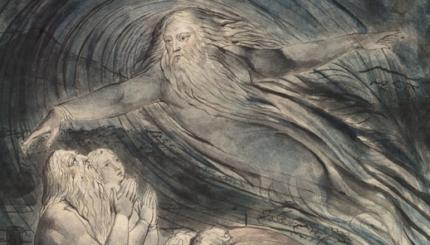When I was about twelve years old, I opened my younger brother’s textbook, just out of curiosity. This textbook from Orthodox Jewish Day School was a Kitzur Shulchan Aruch, summary of a code of Jewish law. The edition was prepared specifically for children.
Rule One was, “Honor your father and mother because they are God’s representatives on earth.”
In what way, I wondered, are parents God’s representatives? Are parents sent on a mission to earth, because God can’t get down from Planet Heaven? Are they really authorized to be such unjust lawgivers?
Forty-two years later, I am still wondering.
But now I know the textbook was not simply summarizing a rule.
The textbook was presenting a profound statement about psychology and theology.
Father’s Day is a good day to explore this statement. And Father’s Day, for me, is a good day to remember how precious my late father, mother and aunt are to me.
Sure, they were people fueled by their own aspirations, stresses, successes and failures. And they did not hesitate to bring their full selves into parenting. But there is no other way to be a person in this world and, all things considered, they were a good trio.
And they continue to surprise me by how large they loom in my consciousness. Much of my wisdom came from them; so did my blind spots. Their daily routines still find expression in the way I wash dishes, seek a parking space, talk to my own children. Their presence is subtle, indefinable, and yet it’s everywhere.
Just like one well-known experience of the ineffable God.
With my kind, supportive parents whispering constantly in my consciousness, I feel the universe holds me with unconditional love.
Had my parents been stern and critical, I might hear a different daily message. Perhaps I would be keenly aware that I am judged by a power greater than myself. A power with standards I can never fully meet, who calls me to continuous self-improvement.
Had my parents been harsh and unpredictable, I might feel the universe as a chaotic or frightening place. And much of my spiritual seeking might be for a grounding in inner peace.
Parents are one of our interfaces with God. Parents reveal God; parents conceal God; God-images are partly drawn from our relationships with our parents. We collect images from different phases of these relationships. The mature images don’t fully supersede earlier, equally powerful ones. All help us grasp what people have meant by “God.”
Personally, I have not fully let go of my pre-teen image of God as an unjust lawgiver, nor of my suspicion of the lawgiver’s representatives. I still wonder: how can teachers claim to know the correct modern interpretations of God’s laws? From whence comes their authority? Who says we should all do things “by the book” in an Orthodox way? What about the Reform principle of autonomy? Or the Reconstructionist principle of local peer group decision? Or the Renewal principle of identifying and fulfilling the existential-spiritual need driving the law?
These different approaches to Jewish practice also represent different developmental moments. We move from following parental authority to peer group authority to personal authority to growing self-understanding — and back again as needed. Each of these approaches represents a different relationship with our parents. And perhaps, by analogy, they represent different interfaces with the Divine.
Each interface is needed, and used, at different times, by all the modern Jewish movements. Perhaps their philosophies are not as irreconcilable as they claim to be. Perhaps, on this Father’s Day, we can think of ourselves as a single family, with an ever-shifting set of relationships between us and our metaphorical Parent.
Sources of inspiration: William James, Varieties of Religious Experience; Anna-Maria Rizzuto, Birth of the Living God; Adin Steinsaltz, Thirteen Petalled Rose; Sigmund Freud, Civilization and Its Discontents. Image: My 8-year old birthday party. Mom and Aunt Sylvia laugh as I cry because Daniel L (also laughing) blew out my birthday candles. Cross-posted at OnSophiaStreet.


